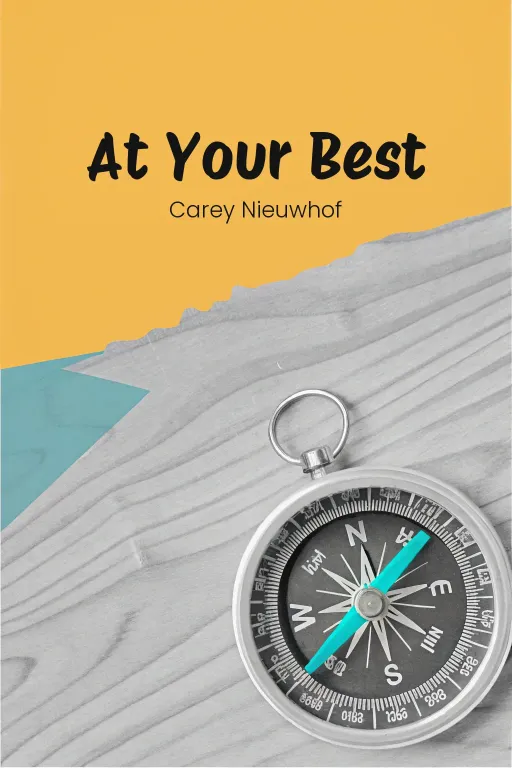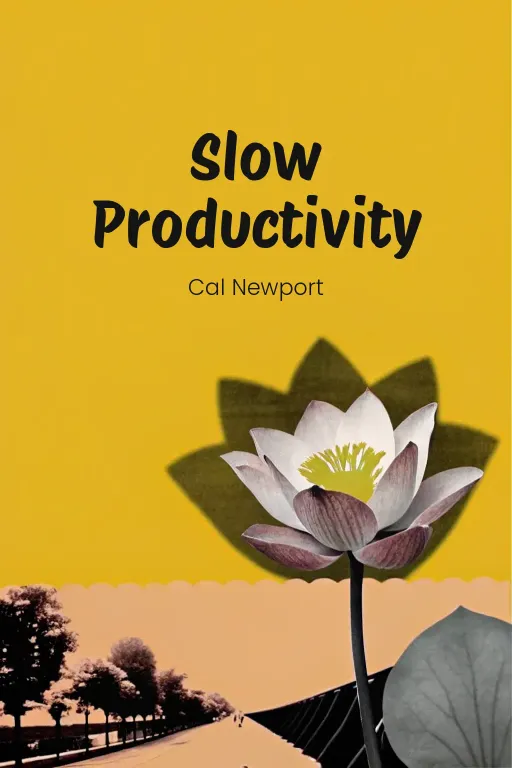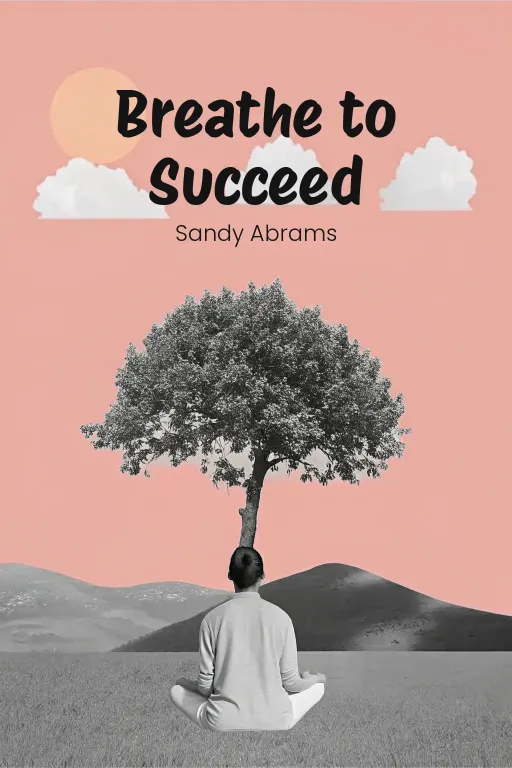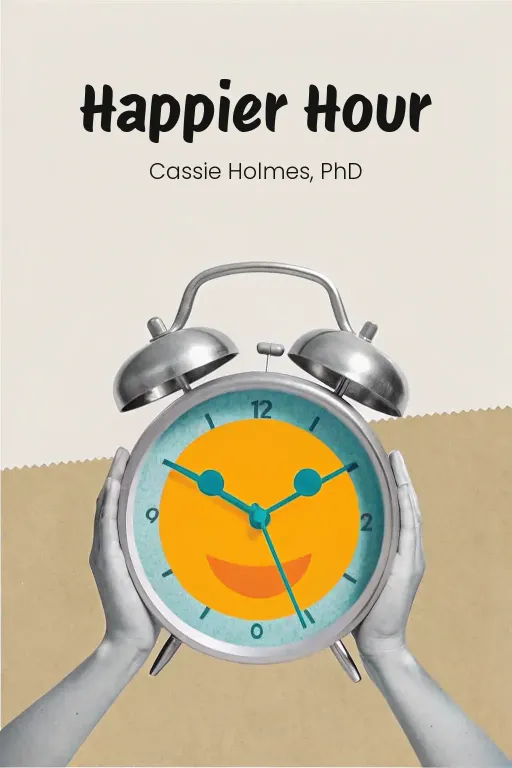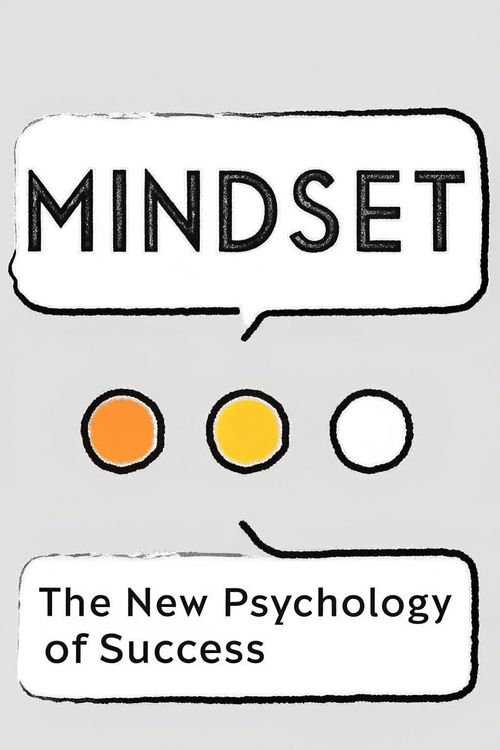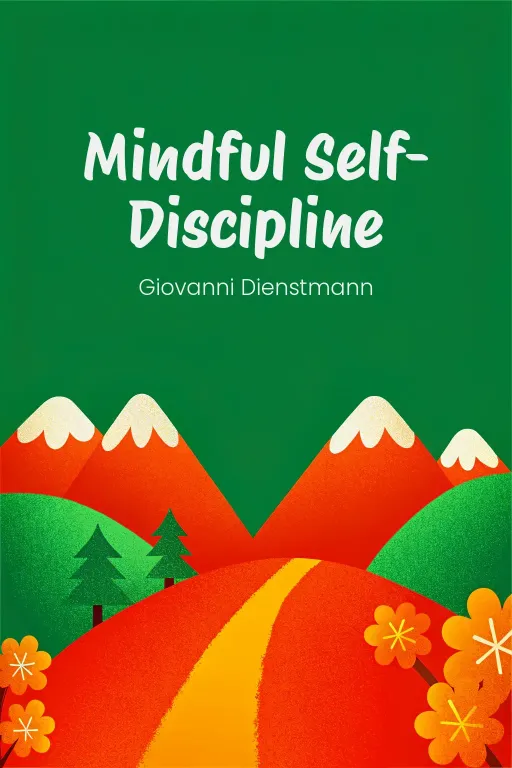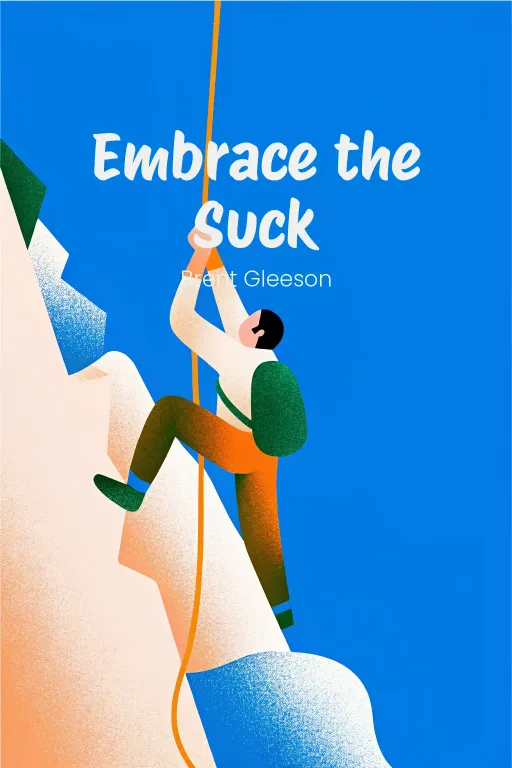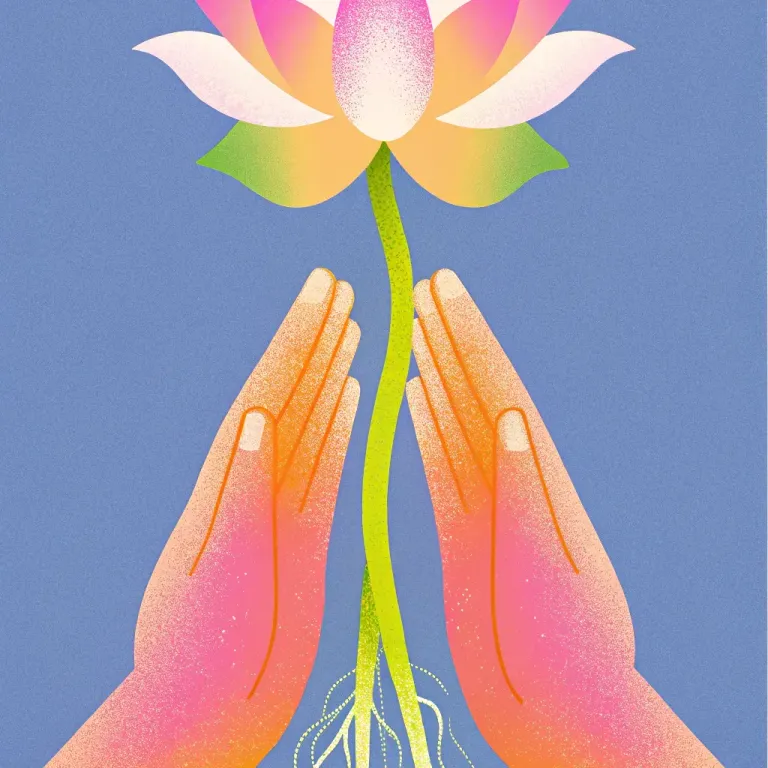
Master Your Willpower: 3 Steps to Self-Discipline
Podcast by Beta You with Alex and Michelle
Living with Purpose and Achieving Your Goals in a World of Distractions
Introduction
Part 1
Alex: Hey everyone, welcome back! Today we're tackling a big one: self-discipline. You know, that thing we're all striving for, but often feels just out of reach. If you've ever wondered why reaching your goals feels like an uphill battle, this episode's for you. Michelle: Self-discipline, huh? Sounds suspiciously like that thing I abandon the second my alarm goes off. Color me… intrigued, but skeptical. Alex: Well, Michelle, what if I told you it doesn't have to feel like a constant battle? Giovanni Dienstmann’s book, “Mindful Self-Discipline”, actually reframes it. It's less about rigid rules and punishment, and more about consciously aligning what you do with what you truly want. Michelle: So, less "grit your teeth and bear it," more… "go with the grain"? Okay, I'm listening. But how does this actually motivate me to, say, get off the couch when Netflix is practically begging me to stay? Alex: That’s where Dienstmann's Three Pillars come in: Aspiration, Awareness, and Action. Think of them as the solid base for building a life where you're both productive and happy. No yelling at yourself required! Michelle: Alright, so we’re starting with big dreams. Makes sense. But what about the inevitable roadblocks? I'm talking about procrastination, distractions, and, of course, the siren song of the snack cabinet. Alex: We're diving into all of that! Today, we're going to unpack everything from the excuses that trip us up to building the emotional strength we need to keep going. And, like a sculptor refining a piece of marble, we'll smooth things out with some lifestyle adjustments and a little bit of mindfulness to tie it all together. Michelle: Fantastic. So, we're aiming to transform self-discipline from a dreaded chore into...an art form? Maybe I'll finally understand that “next episode” button. Alex: Exactly! Let's see if we can help you sculpt that masterpiece, Michelle. Stick around as we delve into “Mindful Self-Discipline”!
The Three Pillars of Mindful Self-Discipline
Part 2
Alex: Okay, Michelle, let's get into the heart of this framework: The Three Pillars of “Mindful Self-Discipline”. The structure is quite logical, right? It starts with Aspiration—that's about figuring out your deeper "why." Then it goes to Awareness, where mindfulness comes in. And finally, Action, which is where you actually make things happen. Michelle: So, the plan begins with dreams, gets real with mindfulness, and then goes into doing mode. Makes sense. But let's be honest—Aspiration, that first pillar, sounds a lot like those New Year's resolutions that everyone forgets about. What makes this different, really? Alex: That's a great question. See, the difference is in how deep you go. Aspiration isn't just about setting a goal, some surface-level thing like "lose weight" or "get a promotion" because it sounds good. It's about really asking yourself, “why does this matter to me, personally?” Michelle: So, it's not just yelling "dream big!" into the void. You have to become a detective a bit—digging into what's really pushing you towards those goals. Alex: Exactly! So, let's take the example from the book: someone who wants to run a marathon. At first, it just looks like a tough physical goal, right? But when you connect it to something that means something to you—like improving your health, honoring someone's memory, or raising money for a charity—suddenly, it's not just about running anymore, it's a mission! That deeper reason is what gets people out there running early in the morning, even when it's freezing cold. Michelle: So, it's about connecting your goals to something that gives you chills or makes you a bit emotional—like plugging your willpower into some really strong power source. Alex: Exactly! And Dienstmann suggests helpful ways to figure out these aspirations. Take journaling, for example. Writing down things like "What matters most to me? What kind of life do I want to build?" can really help you spell out exactly what you want. Michelle: Journaling, huh? What if I'm more of a visual person, though—less "writing," more "seeing"? Alex: Well, then you can try visualization. Picture yourself achieving the goal—crossing the finish line of that marathon, getting applause at your book launch—and really connect with the feelings you’d have in that moment. It's like training your brain to link happiness with effort. Michelle: Okay, that actually sounds kind of useful. But here's where I always get stuck: I start with aspirations, but then I get distracted or start messing things up for myself. That's pillar two, Awareness, right? Alex: Right. Awareness is what links those big aspirations to your everyday life. It’s mindfulness in action—watching your thoughts and urges without judging them, so you can guide them where you want them to go. Michelle: Like when you're halfway through a bag of chips and you remember you promised to eat healthy? “Awareness” feels a little too late then. Alex: That’s where the PAW Method comes in: Pause, Awareness, and Willpower. First, pause before you grab the chips. Take a moment to stop yourself from just reacting automatically. Then, awareness. Ask yourself, “Am I eating this because I’m really hungry—or just bored, stressed, or avoiding something?” And then willpower. Based on what you realize, make a choice that lines up with what you really want long-term. Maybe have some tea instead. Michelle: So, it’s like stopping that craving train before it crashes your plans. Sounds good in theory, but doesn’t willpower run out after a while? Alex: True, that’s why being mindful consistently helps stretch it out. Doing things like meditation regularly can train your brain to notice urges sooner, giving you more control. Plus, even small wins build confidence. Michelle: Let’s say we have Sarah, the late-night snacker from the book. She uses the PAW Method—but how does she go from being mindful to actually changing what she does? Changing tea for chips probably doesn’t happen overnight, right? Alex: That’s a great example. Well, Sarah starts by noticing what sets her off—she realizes she wants snacks when she’s tired after a long day. Once she’s aware of that, she starts having tea instead of chips. And as that becomes a habit, her way of thinking changes too: late-night Netflix isn’t just about treating herself anymore, it becomes a way to relax without messing up her goals. Michelle: It must feel good to get those small victories. But knowing things and being aware is only part of the story. You’ve got your goals, you’re paying attention to distractions—but the real magic has to be pillar three: Action. Alex: Exactly! Action is where you turn all those intentions into something real. And one of Dienstmann’s big ideas is the “Never Zero” philosophy—focusing on being consistent, not perfect. Michelle: Never Zero. Sounds like a motivational poster, but what does it actually mean? Alex: It means doing something—even if it's tiny—every single day to move closer to your goal. Say you promised yourself 30 minutes of exercise, but you get held up at work and end up feeling exhausted. Instead of just skipping it, you stretch for five minutes. It doesn’t sound like much, but it keeps you from feeling bad about giving up on your routine altogether. Michelle: Small steps over superhero leaps. I like that. And the book talks about John’s story, doesn’t it? Alex: Yes, John is a father of three who dreams of writing a novel but barely has any free time. Instead of waiting for big blocks of uninterrupted hours, he starts by writing just 50 words a day. It’s something he can manage and repeat. Over time, those 50 words turn into chapters, then a whole draft—and eventually, a finished book. Michelle: Like the tortoise way of achieving discipline; slowly but surely making it to the finish line. But what if someone’s just stuck? You know, when the distance between where you are and where you want to be feels huge? Alex: That’s where those visualization techniques come back in. Before you dive into something big, picture the satisfaction of getting it done—how tidy your room will look, how great your presentation will be, or how relaxed you’ll feel after finishing it. Getting excited about that reward in your mind can help you overcome that feeling of being stuck and make those first steps feel easier. Michelle: So if break things down, stay mindful of my impulses, and commit to little steps, I'm basically unstoppable? Alex: Pretty much. These three pillars all work together—aspiration sets your direction, awareness helps you stay on course, and action makes sure you’re always moving forward. It’s a system designed to help you avoid distractions while staying focused on what “really” matters. Michelle: Alright, Alex, I’m officially impressed. Now, let’s see if I can actually use all three pillars next time I find myself watching three-hour documentaries about penguins instead of working on something important.
Overcoming Challenges to Self-Discipline
Part 3
Alex: So, understanding these pillars is key for weaving mindful self-discipline into our daily routines. But, let’s be real, sticking to anything is hard, right? Obstacles like self-doubt and distractions are where the real work begins. I love how the book tackles this, with a problem-solution approach. It names those common hurdles and then gives us concrete ways to jump over them. Michelle, ready to get into the trenches? Michelle: Absolutely, Alex. I’m sure my inner skeptic is polishing its magnifying glass as we speak, ready to pounce on anything that sounds too easy. So, why start with self-doubt? It feels like everyone’s secret Achilles’ heel, you know? We all have it, but no one wants to admit it. Alex: Exactly! Self-doubt quietly sabotages even the best intentions. It’s that little voice whispering, "You can't do this. You're not good enough." Giovanni gives us some cool ways to fight back. One I really like is the "Not Now" technique. It sounds simple, but it's surprisingly powerful. Michelle: Let me guess. When my brain starts screaming, “You’re going to screw this up,” I just tell it, “Not now, brain, try again later?" Seems… a little avoidant, no? Alex: I see why it might seem that way, but it's not about avoiding the problem. It's about postponing judgment so you can actually get somewhere. Okay, so here's an example from the book: Picture Emily, a graphic designer, who's suddenly second-guessing her creative choices halfway through a big project. Instead of getting stuck in that spiral, she uses "Not Now" to shelve her inner critic. She finishes the first draft and then looks at it later with fresh eyes. Turns out, her ideas were actually pretty good. Michelle: Hmm… so, it’s about preempting our own self-sabotage. Just keep pushing forward before letting that inner critic grab the steering wheel. Interesting. Alex: Exactly! And then there's the "Remove Options" strategy, which is even more hardcore. The idea is simple: if you cut off your escape routes, you force yourself to stay the course. Michelle: Ah, I know this one. This is like Sun Tzu’s "burning the boats" in The Art of War, right? Soldiers destroy their ships so they have no choice but to fight. Pretty dramatic, but effective. Alex: Totally! It works surprisingly well in our modern lives. Imagine you need to focus on a work project, but social media keeps calling to you. Deleting those apps or using a focus app to block them out takes away that easy distraction. It’s the same with fitness goals: if sweets are your weakness, then lock them away, or better yet, don't buy them in the first place. Take away those temptations, and your willpower gets a little boost. Michelle: So, it’s like creating a no-escape zone, but instead of facing enemy warriors, I'm battling my Netflix addiction. Makes sense. But what if failure creeps in anyway? Because let's be honest, staying disciplined is “really” hard. Alex: Enter the ALFA Method: Acknowledge, Learn, Forgive, and Act. It's like a four-step reset button when things go wrong. Michelle: ALFA, huh? Catchy. Walk me through it. Let's start with step one. Alex: First, you Acknowledge the screw-up, like, take responsibility without blaming everyone else or pretending it didn't happen. So, say you miss a deadline because of procrastination. You'd start by owning the fact that you didn't plan well enough. Michelle: Fair enough. But this isn't just about wallowing in guilt, right? What's next? Alex: Next, Learn from it. Why did it happen, and what can you do to prevent it next time? For our procrastinator, maybe it's implementing stricter time-blocking or setting earlier deadlines. Michelle: Sounds good on paper, but a lot of people tend to just beat themselves up over mistakes instead of actually moving forward. Alex: That’s where step three comes in: Forgive. The book says it's key to move past the self-criticism to avoid getting stuck. Beating yourself up doesn't fix anything, it just drains your energy. Michelle: And then, finally, Act. I like that ALFA ends with action. It’s not about sinking into regret, it’s about making things happen. Alex: Exactly! Moving from aiming for perfection to aiming for progress is a big deal when you're facing challenges. For example, Alex, an artist in the book, learns to let go of the idea that every piece has to be perfect. Instead, he shares his sketches online to get feedback and connect with people. That constant effort, even if it's not perfect, builds his skills and his confidence. Michelle: I already like Alex. I mean, progress over perfection is so freeing, especially for us recovering perfectionists, right? But let's be real. Even if you handle self-doubt and excuses, aren't distractions the biggest challenge in our buzzing, overstimulated world? Alex: Oh, for sure. Our brains are wired to chase those little hits of dopamine, which is why scrolling through social media is so much easier than working toward long-term goals. But Giovanni talks about two cool tools for managing this: commitment devices and mindfulness. Michelle: Commitment devices – that’s just a fancy way of saying we’re creating speed bumps for our bad habits, right? Alex: Exactly. Let's take Brian's example from the book. He's trying to study for his exams, but he keeps getting sucked into video games. So, what does he do? He removes the apps and unplugs the consoles during study time. Goodbye, distraction. Instead of relying on willpower alone, he's set up a system where temptations simply aren't an option. Michelle: Science meets self-discipline. Okay, commitment devices sound helpful for fighting distractions. But how does mindfulness play into this? Alex: Mindfulness helps you deal with instant gratification by making you pause and check in with yourself. Email notifications, TikTok, snacks – when those urges come up, a simple thing like the "10-minute rule" can help you delay action. Instead of just giving in, you set a timer for 10 minutes, pay attention to what you're feeling, and usually, the craving passes. Michelle: Let me guess – you then pair that with balanced rewards so you don’t feel completely deprived, right? Alex: Exactly! Lisa, another example, uses this when she’s writing her thesis. She rewards herself with 20 minutes of her favorite show after reaching specific milestones. That way, she stays productive without totally cutting off those dopamine hits. Michelle: Alright, I can't argue with that. Balance is definitely better than going cold turkey. But what about the things we can't control? Like, what if the people around us – our friends, family, coworkers – aren't exactly cheering us on? Alex: Ah, external influences. The book emphasizes that your social circle “really” matters. Jonathan, for example, was struggling to develop healthy habits because his friends weren't on the same page. But by joining a running club, he surrounded himself with people who supported him. Michelle: So, the vibes we surround ourselves with are contagious, for better or worse. Got it. Alex: Exactly. And if your current environment isn’t supportive, accountability relationships can help fill that gap. Sharing your goals with a friend, hiring a coach, or joining a group can make a huge difference. Actually, studies have shown that publicly committing to a goal can increase your chances of success by over 60%. Michelle: Alright, Alex, you've definitely got me thinking differently about distractions, accountability, and even perfectionism. If self-doubt, dopamine, and bad influences are the villains here, these strategies sound like the heroes we need.
Lifestyle and Spiritual Integration for Sustained Growth
Part 4
Alex: Equipping yourself with these tools naturally leads to exploring how lifestyle choices can further reinforce self-discipline. And that’s where our focus lands today—lifestyle and spiritual integration for sustained growth. Michelle: Lifestyle and spiritual integration? Wow, Alex, sounds like we're diving into the deep end! So, this is about more than just forming habits; it's about creating a whole ecosystem where discipline thrives, am I right? Alex: Exactly! We are expanding our discussion from just daily habits to a more holistic view, and it covers physical health, mental clarity, and even spiritual alignment. We'll explore how sleep, nutrition, exercise, meditation, and your overall sense of purpose all contribute to self-discipline—not just as a temporary fix, but as a lifelong journey. Michelle: Okay, I’m game. So where do we start? I think, I might as well ask, how does sleep fit into all of this? Because if I had to pinpoint my biggest self-discipline failings, my midnight Netflix binges definitely rank pretty high. Alex: Sleep is foundational, Michelle. Just think of it as the fuel that powers your discipline engine. Without adequate sleep, your ability to make sound decisions and regulate your emotions just plummets. Studies even show that sleep deprivation can impair your cognitive abilities as much as, say, alcohol intoxication. Michelle: Wait a minute, you are telling me that my sleep-deprived brain during finals week was basically operating at a “drunk enough to text my ex” level? Alex: <Laughs> Well, that's one way to look at it! Seriously though, lack of sleep leads to irritability and impulsivity, which makes it incredibly hard to stick to your goals. That's why establishing routines that support your natural circadian rhythm—like consistent bedtimes and cutting down on blue light before sleep—are vital. If you truly value discipline, you absolutely have to value your pillow. Michelle: Alright, got it. Sleep is now officially non-negotiable, at least if I want to maintain some semblance of control over things. But what about food? I tend to eat whatever is most convenient, which, let's be honest, probably isn't doing my willpower any favors either. Alex: Nutrition is another key cornerstone. Poor food choices, like relying on sugar or unhealthy fats, can cause huge energy crashes and mood swings, basically dragging down your discipline levels. Nutrient-dense foods, on the other hand; I mean lean proteins, healthy fats, and complex carbs, help stabilize your energy and focus. Michelle: So, no more chips and energy drinks then, got it. But what does that look like in practice? I mean, surely it involves more than just choking down kale smoothies, right? Alex: Definitely! The book highlights meal prepping as a potential game-changer. Linda's story for instance, comes to mind. She swapped all her sugary snacks for healthier options like nuts and fruit after she realized that her energy crashes were derailing her productivity. By proactively planning her meals, she was setting herself up for success. Michelle: Planning ahead...mmm, that makes sense. Okay, so if sleep and nutrition are the foundation, where does exercise fit into all this? I know it helps with stress, but does it really have a tangible impact on self-discipline? Alex: Absolutely! Regular exercise not only boosts endorphins, which, as we know, elevates your mood, but it also strengthens the prefrontal cortex— the part of your brain that's responsible for impulse control. Research even suggests that just twenty minutes of moderate exercise can significantly improve focus and also reduce procrastination. Michelle: Okay, so exercise isn't just about appearances, it's a cognitive upgrade. And I bet the book has a hack for people who always say, "I just don't have the time to work out," right? Alex: It does! Short bursts can be really effective. Believe it or not, even a brisk fifteen-minute walk can totally reframe your mental state. The key is prioritizing consistency above all else. Maybe using visual cues, like keeping your workout gear in a visible spot, can help reinforce the habit. Michelle: Alright, I'll admit it—sleep, nutrition, and exercise all sound like common sense. But tying them directly to discipline definitely adds a sense of urgency, I'll give you that. So what else is there? Alex: Next up: meditation. The book actually frames meditation as mental training, very much like how physical exercise strengthens your body. Through consistent practice, you can really improve your focus, learn to regulate your emotions, and enhance your impulse control. Michelle: Meditation, huh? I've always thought it seemed, well, kinda “woo-woo”—or just aimed at people with a lot of free time. So, go on, convince me. Alex: Let's start with the science. Meditation activates the prefrontal cortex while simultaneously quieting down the amygdala, aka, the center of fear and stress in our brains. This dual effect fosters emotional stability over time, which is undeniably critical for staying disciplined, especially when you're under pressure. Michelle: Mmm. Solid neuroscience; I'll give you that. But how do you actually make it a habit? I mean, sitting still for ten minutes sounds way harder than binge-watching four seasons of a show. Alex: Start really small, just five minutes a day. Consistency is far more important than duration when you're first starting. Remember, James's story from the book? He's a startup founder who was constantly overwhelmed by stress. Just ten minutes of mindfulness meditation each morning helped him stay stay composed and make much clearer decisions. Michelle: Fine, consistency wins yet again. And I assume this "results snowball" effect keeps the motivation going? Alex: Exactly. Once you start noticing the positive impact—better focus, less reactivity—you'll naturally want to keep at it. Plus, meditation isn't just some isolated practice, it carries over into your everyday life. Suddenly, you're pausing before reacting, and making so much more deliberate choices. Michelle: Alright, you have sold me on this whole "mental training" idea. Now spirituality—how does it all fit into the equation? I'm starting to feel like we're moving into the abstract, here, Alex. Alex: It's actually not as abstract as you might think. Spirituality, at its core, is about aligning your actions with a higher sense of purpose, which ultimately gives meaning to your discipline. It's about stepping back and asking yourself: "Does this action really serve my future self and the overall bigger picture I'm working towards?". It builds resilience by helping you reframe setbacks as integral parts of a much larger journey. Michelle: So instead of just wallowing in failure, you take a step back and you're like, "Okay, this is just a little bump on the road to my ultimate destination." But how is that any different from the endless stream of personal development books all preaching about finding your purpose? Alex: Well, it's distinct because it emphasizes integration. Spirituality isn't something separate from your daily actions. Take Tony for instance. He was this high-earning professional who still felt unfulfilled, til he then aligned his ambitions with a real purpose. He then decided to use his success to support education for underprivileged children. That alignment really reinvigorated his motivation. Michelle: I can definitely see how tying your personal aspirations to something larger than yourself would make discipline feel less like a constant grind. But what if someone isn't particularly spiritual? Alex: That's totally fine. Spirituality, in this context, doesn't necessarily mean religion; it's more about setting long-term values that genuinely guide your goals. Journaling or sometimes just reflecting on your priorities can really help clarify what truly matters to you, and it helps ensure that your goals align with those priorities. Michelle: Alright, Alex, I'll admit it; this holistic lifestyle approach to discipline definitely has its merits. I mean, physical health, mental clarity through meditation, and that overarching sense of purpose all seem to reinforce discipline from totally different angles. So I guess the next real step is making it all sustainable, right? Alex: Precisely! It's definitely not about just finding quick fixes, but about creating this cohesive lifestyle where discipline becomes ingrained in your daily routines, and it's all guided by a much greater sense of purpose. When all of these elements work together so harmoniously, you're not just practicing discipline—you're genuinely living it.
Conclusion
Part 5
Alex: Okay Michelle, we've really covered a lot today. From those Three Pillars – Aspiration, Awareness, and Action – to overcoming obstacles like self-doubt, procrastination, and distractions using ALFA, commitment devices, and mindfulness. And then, weaving it all together with lifestyle tweaks: sleep, nutrition, exercise, meditation, and even connecting to something bigger than ourselves. Michelle: So, if I'm hearing you right, self-discipline isn't just about forcing yourself through things. It's about building a framework. A framework that links what's truly important to us with what we do every single day, all while allowing for slip-ups and getting back on track. Alex: Precisely! And it all boils down to one question: What really matters to me? Once you've got that answer, everything else becomes a deliberate effort to bring your choices in line with that central value. Michelle: That’s a pretty powerful takeaway, Alex. So, listeners, here’s a bit of a challenge: pick just one of these ideas – maybe journaling about your underlying motivation, trying a short mindfulness exercise, or even just getting an extra hour of sleep tonight. Start small, but get started. Alex: Because all those little steps add up. Discipline isn’t about being perfect; It’s about getting better, bit by bit. Michelle: Progress, now that's something I can actually get behind. Alright, Alex, now to see if I have the discipline to resist that late-night documentary… Alex: Just take it one little step at a time, Michelle. One little step.

